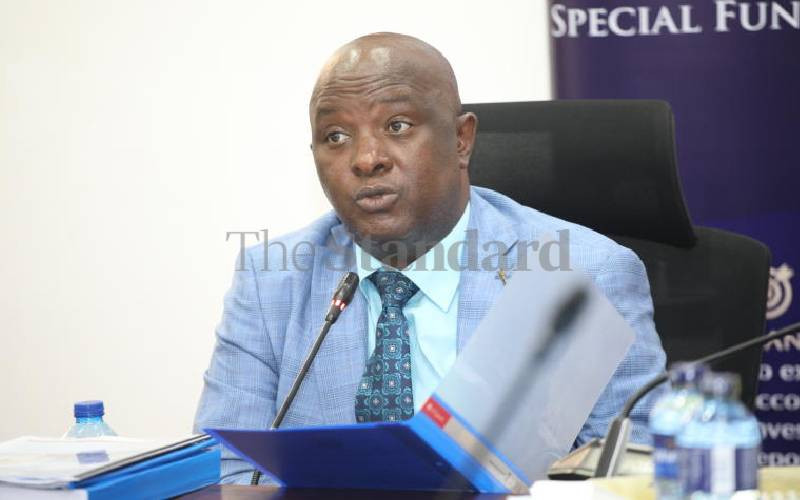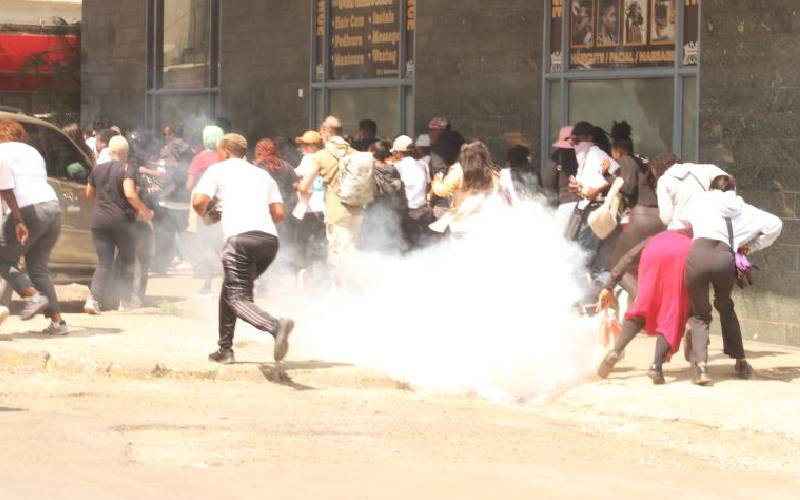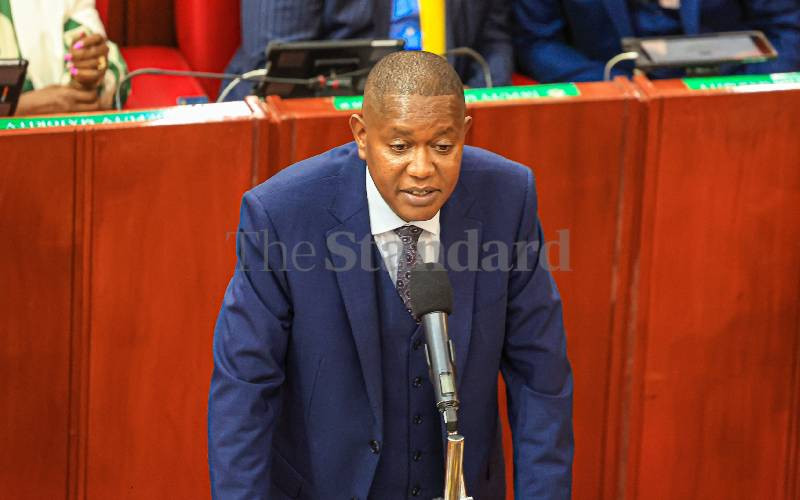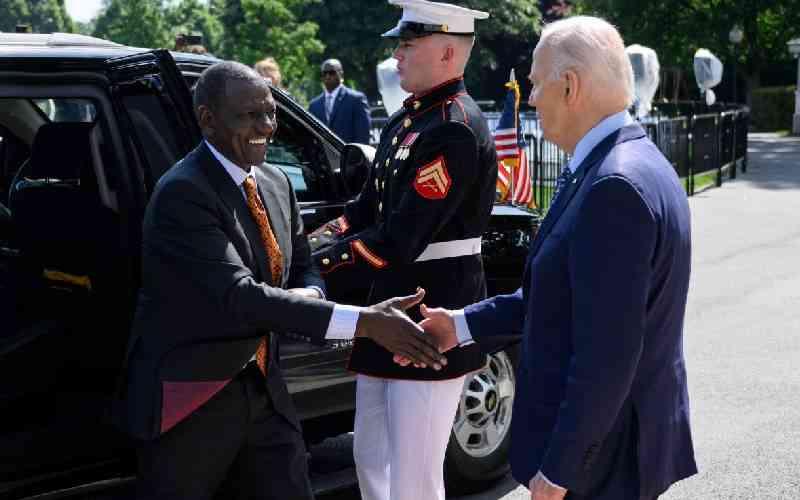Kenya is a country at war. And no country at war ever tries to neuter the Commander-in-Chief of their Armed Forces. A country at war does not dilute the powers given by the Constitution to their president to deal with the enemies of the country. If anything, the concerned country examines those powers to see whether they are sufficient for efficient handling of the crisis at hand and any ancillary or auxiliary issues, with a view to enhancing them.
It is, therefore, shocking to hear that a section of Kenyans, that ought to know better, are sharpening their appetite for expanding the decision-making from the president to a sort of quasi-communist presidium or triumvirate. And this is coming after the presidential powers that the Kenyan president had were shared with the devolved entities and various independent institutions created by the 2010 Constitution. Al Shabaab would be very happy to hear that Kenya has a Commander-in-Chief without real powers. That is the reality, fellow Kenyans. It is neither good for Kenya or Kenyans nor is it good for the rest of the fairly peaceful East African region.
Already Al Shabaab is taxing not only the Somali rural folks to death, it has infiltrated the Somali Chamber of Commerce and Industry and is busy entrenching itself. It’s no secret that the president cannot go from one end of Mogadishu to the other by road and has to fly. That is how formidable our challenge is as of now. If Mogadishu is taken, what use will Kismayo be?
Let me put it plainly. Kenya is surrounded by countries that have very powerful leaders. They have near-dictatorial powers. Why should their peer be stripped off the few powers that he enjoyed as a result of negotiation with the people? Over 67 per cent of them were in agreement. And that included all the leaders who are now orchestrating further dilution of those powers. It does not matter that the president is lukewarm about it or even agrees with it. It is the security of Kenyans at stake and Kenyans had better be reminded that they already ceded so much power to the presidency and so much to devolution in order to create a viable nation.
There are those who think Ethiopia is in our league. It isn’t. They have been ruling themselves under a monarchy for years. The current PM Abiy Ahmed is both de jure and de facto chief executive as the president is a purely ceremonial figure. That has been so since 1909 when he was referred to as chief minister and PM since 1943. He has no term limits.
That brings me to the second issue that I would like to address in plain terms. There have been threats to alter the Constitution of Kenya by force not so long ago. You are all aware of them. We even saw projected maps of how it was meant to look. It shows that given a chance, some people would divide the country. I call on all patriotic Kenyans who cherish a united Republic of Kenya to stand firm with our constitutional order. That is what the founders bequeathed future generations of Kenya.
Regional kingpins
The proposal for a third-tier governance system is a threat to our Constitution and unity. The aim is to have Wanjiku vote for regional kingpins and regional fiefdoms. That will deny Wanjiku the right to visit or do business in any part of Kenya unimpeded. The next thing the regional governments will demand is autonomy. Once that is achieved, the centre will not hold. Mere anarchy will be loosed upon Kenya, to use a borrowed expression. In my view, once there, Uhuru Kenyatta and William S Ruto will be the last young pair to rule Kenya, for longer than you expect. It will be up to cartels to offer kingpins to lead Kenya.
The idea of having 47 counties was laudable and meant to resolve ethnic issues and spread development evenly. That has not yet fully been implemented due to budgetary constraints and corruption. To add another layer of governance is like adding a hill to the high jump or adding salt to the wound. Nigeria, from where these ideas appear to have emanated, started with a Federation of Three Regions in 1958 and the political subclass of State Bureaucracies has over the years and crises created 36 out of the original three.
We started with one centrally governed entity and now we have 47 counties. It shows we were right about devolution and any additional tier of governance will be an attempt to kill devolution. Let’s not go there.
Lastly, I have noticed that once turf wars begin, the youth are remembered only as standby militias to be unleashed on opponents when things go wrong. The proposed addition of a PM, two deputy PMs and 14 regional leaders, would rob the youth of many jobs and opportunities. That is stunting the future of this country.
In political thought, I do not know what people mean by political inclusivity. What exists is political inclusion which is critical to development of a country. It means inclusion of the less heard in mainstream policy interrogation and decision-making, amplification and support of civic voices in policy, governance and development, translation for linguistic diversity and recognition and support for other social minorities, to name but a few examples. There is no politician that needs inclusion unless she falls under a disadvantaged group. They can fight for themselves.
-The writer is a lawyer and an author
Stay informed. Subscribe to our newsletter
 The Standard Group Plc is a
multi-media organization with investments in media platforms spanning newspaper
print operations, television, radio broadcasting, digital and online services. The
Standard Group is recognized as a leading multi-media house in Kenya with a key
influence in matters of national and international interest.
The Standard Group Plc is a
multi-media organization with investments in media platforms spanning newspaper
print operations, television, radio broadcasting, digital and online services. The
Standard Group is recognized as a leading multi-media house in Kenya with a key
influence in matters of national and international interest.
 The Standard Group Plc is a
multi-media organization with investments in media platforms spanning newspaper
print operations, television, radio broadcasting, digital and online services. The
Standard Group is recognized as a leading multi-media house in Kenya with a key
influence in matters of national and international interest.
The Standard Group Plc is a
multi-media organization with investments in media platforms spanning newspaper
print operations, television, radio broadcasting, digital and online services. The
Standard Group is recognized as a leading multi-media house in Kenya with a key
influence in matters of national and international interest.









